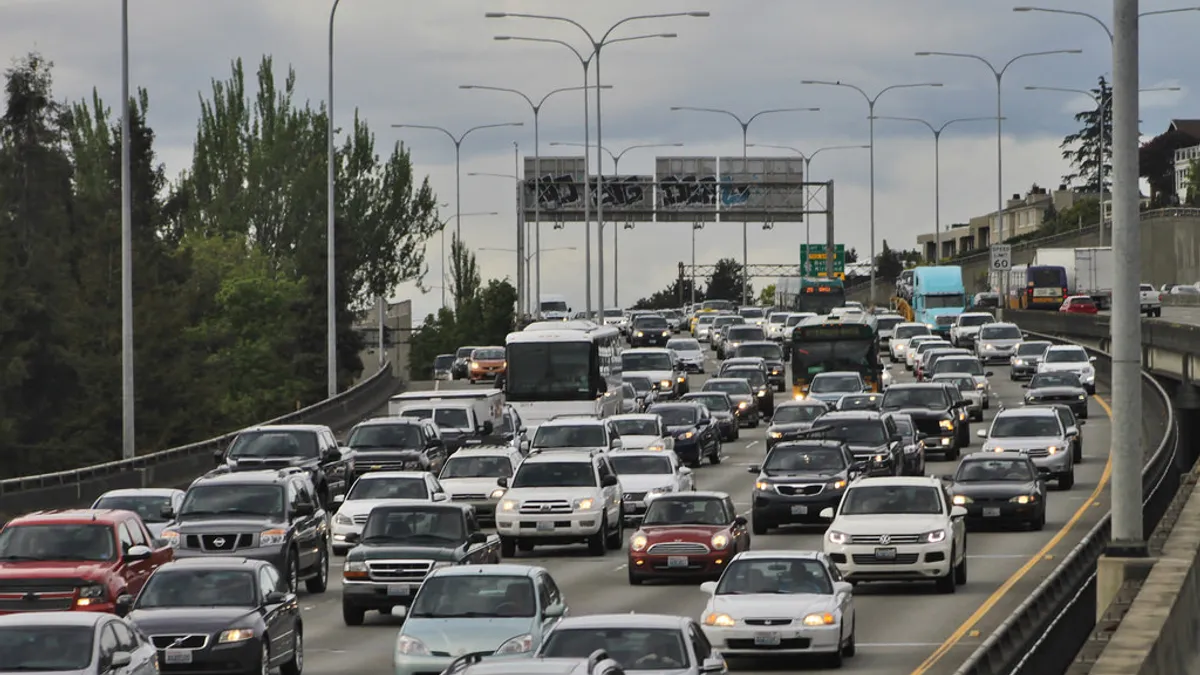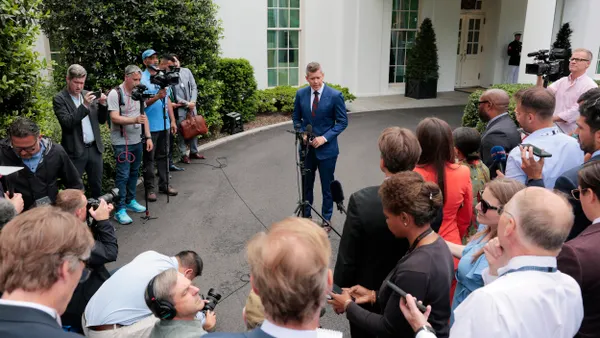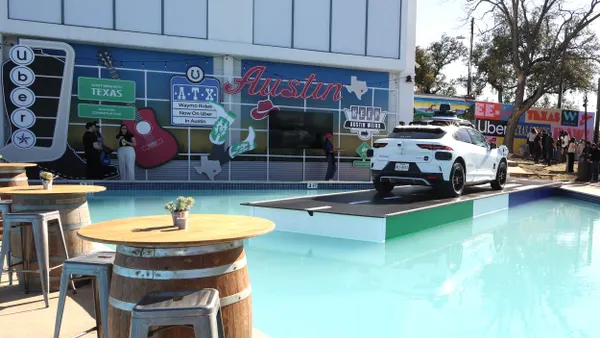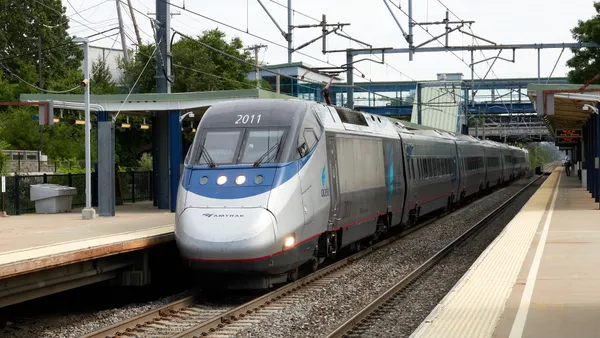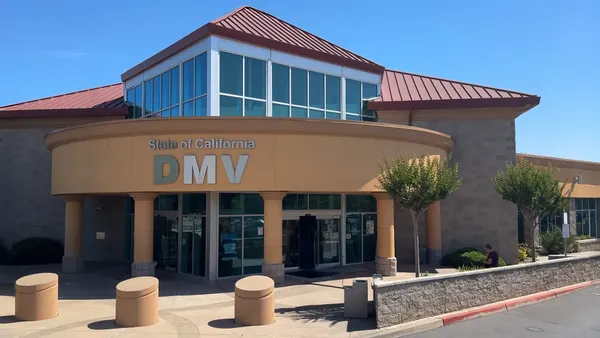Dive Brief:
- The expansion of autonomous vehicles (AVs) will result in major changes to traffic flow, according to an analysis by the World Economic Forum and the Boston Consulting Group, based on surveys in Boston and models of the city’s traffic. The study projects that mobility on-demand (both autonomous and traditional) will account for nearly 30% of trips in the greater Boston area, up from 7% now. That number will be 40% within city limits.
- Because shared AV trips could replace use of transit, the study finds AVs would worsen congestion downtown, with a 5.5% increase in travel times in downtown Boston. In outer neighborhoods, shared AVs could replace personal vehicles instead of transit trips, meaning less congestion. In Allston, MA, the study projected that travel time would drop 12.1% with AV deployment.
- The reduction in personal vehicle use would also reduce the need for parking spaces in downtown Boston; the report says Boston could reduce parking spaces by 48%, which could radically transform city streets.
Dive Insight:
Study authors surveyed 5,500 residents in 27 cities and found consumer acceptance of autonomous vehicles is not far off — 60% of those surveyed said they were ready to ride an AV, and most looked forward to not needing to park. Boston, the test case in the study, has also upped its AV tests on public streets. That — along with the rest of the findings — shows cities need to start work now to adapt to the changes.
John Moavenzadeh, a study co-author and member of the World Economic Forum executive committee, said in a statement that cities “need to actively explore policies and incentives, such as dynamic pricing, dedicated lanes and redesign of the curb to ensure that autonomous vehicles will achieve the full value for society that they promise ... If such choices are not made, cities risk losing more than they will gain from autonomous vehicles."
Especially of note is how AVs could upend transit ridership. Already cities are contending with how ridesharing has moved some transit trips into vehicles, and are beginning to try to work with the companies to supplement, rather than replace, transit. Lyft, one of the biggest ridesharing companies, has now integrated transit into its app.
Similar work may be needed with shared AV distributors to ensure congestion does not become too overwhelming. Similarly, cities should start planning now on issues like land use, lane access and safety concerns, or risk being caught off-guard. Speaking at the launch of the Congressional Smart Cities Caucus in March, Uber federal affairs head Danielle Burr said, “Low-tech approach is vital to that high-tech approach.”


